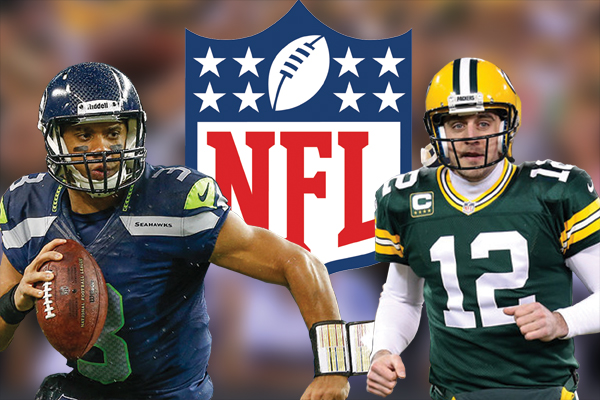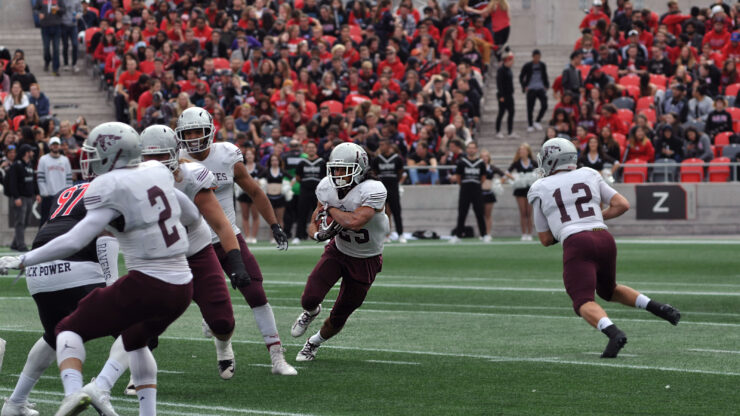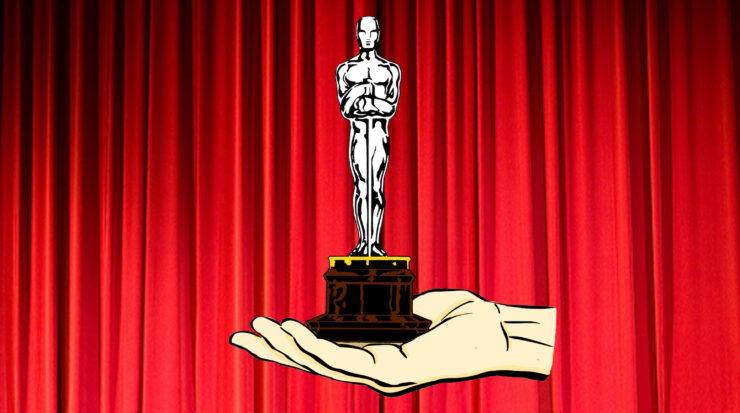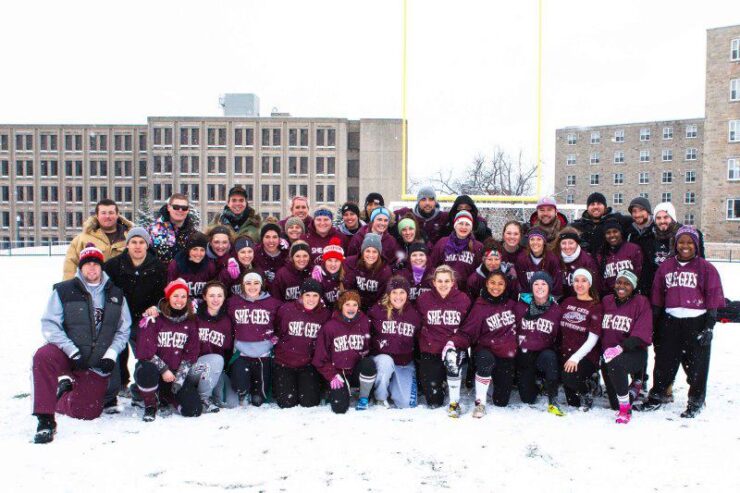Media and commentator adjectives subtly skew players based on race
Sports are a microcosm of society as a whole, which is what makes them so compelling for people to follow and what makes others like myself tremendously passionate about them. Just like society, however, there are still a lot of things that must improve.
Racism and the perception of races within sports is one of those things.
Sports have often been at the forefront in the fight for equality. Muhammad Ali and Jackie Robinson are significant names almost as much as Martin Luther King or Malcom X. That being said, with the recent Richard Sherman media incident, we clearly have a long way to go to achieve true equality in sports and in society.
In the last three years, football has seen a rise in the number of prominent black quarterbacks and has been described as the golden era of black quarterbacks. It is not a coincidence that in these past seasons, we have also heard of dual-threat quarterbacks, referring to quarterbacks who can run just as well as they throw. Of the 32 National Football League (NFL) teams, 11 of them started a black quarterback at one point in the 2013–14 season. Of those 11, six were considered to be dual-threat quarterbacks. Considering the history of the NFL, those numbers are tremendous. So where is the problem?
Some of these quarterbacks are still perceived differently than their white counterparts. For example, Cam Newton of the Carolina Panthers was deemed a dual-threat quarterback coming out of college. At the NFL Scouting Combine, a weekend event where future NFL rookies do a series of drills to test their strength, speed, and abilities on the football field, people raved about Newton’s athleticism. The following season, Andrew Luck of the Indianapolis Colts posted similar numbers at the Combine. Newton and Luck both ran the 40-yard dash in just under 4.6 seconds.
In the NFL, however, when Newton uses his legs to extend or make a play, commentators will often say he used his athletic ability to make such a play. When Luck uses his legs, the same commentators will say he used his head to make the play, highlighting an unjustified distinction between brain and brawn.
The stigma of the running quarterback gets attached to black quarterbacks even though they were known to be pocket passers in college. This year, Geno Smith of the New York Jets and EJ Manuel of the Buffalo Bills, both black, were referred to as athletic quarterbacks when they used their legs while white pocket quarterbacks such as Joe Flacco and Alex Smith were said to be using their heads.
Other ways in which white and black players are perceived differently is the way people conceive ideas about how they react on and off the sidelines. On the one hand, when Dez Bryant of the Dallas Cowboys would burst out and scream at his quarterback and teammates this season, everyone was under the impression that he should stop the nonsense. However, it was later revealed that Bryant was sharing words of encouragement and trying to pump up the team. But when Tom Brady yells at his teammates on the sidelines, he’s referred to as “fiery.” Why?
The NFL is a league that sets the standards for equality in sports, particularly when it comes to its players. Policies like the Rooney rule, which mandates that minority candidates be interviewed for head coaching and senior staff positions, make it so the NFL continues to push towards equality. Though substantial steps have been taken, there’s still a long way to go.
Two seasons ago in Oakland, a black general manager drafted a black quarterback and fired a black head coach — something that would have been unthinkable just 25 years ago. In the glorification of quarterbacks to superstardom, including the likes of Newton, Russell Wilson, Colin Kaepernick, and Robert Griffin III, we are changing the perceptions attached to black quarterbacks not only on the field, but off the field too. Future NFL hopefuls such as Teddy Bridgewater and Jameis Winston will hopefully do the same.
Sports do not only reflect the negative aspects of society, but they also shine a light on the positive ones as well.






